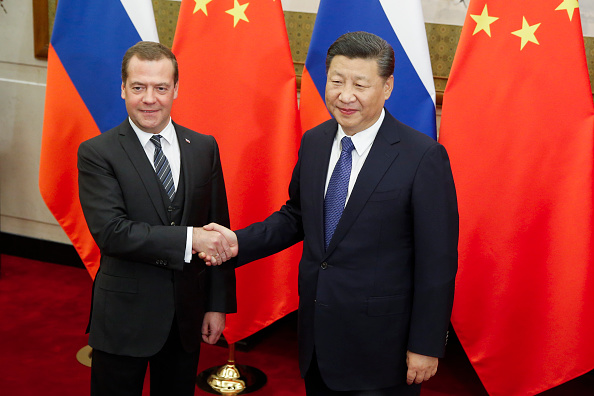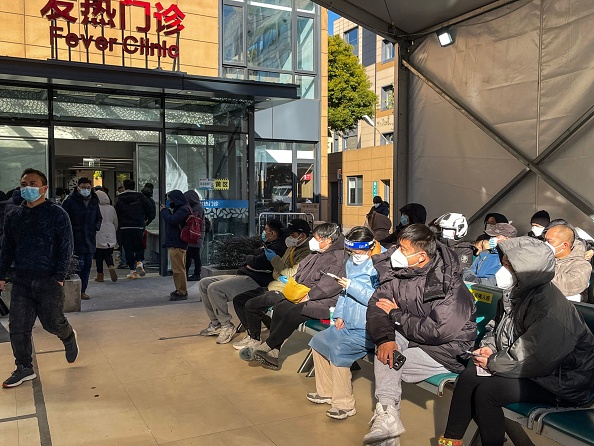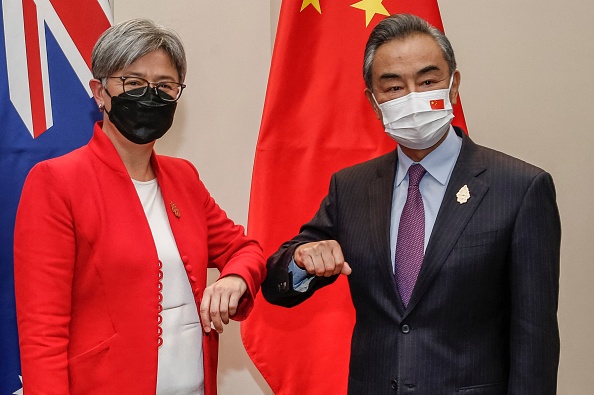
Hi, China-US Focus followers and subscribers, thank you for your support and readership in 2022! As we approach the New Year, followed by the Chinese Year of the Rabbit, we look forward to what 2023 will hold for the world's most important bilateral relationship. This will be the last edition of our newsletter for 2022, but we'll be back in the first week of January 2023 gathering the top news on China and its relationship with the rest of the world. In the meantime, we would like to wish you a warm and joyful holiday season! And may the new year bring you peace, joy, and happiness.
- China-US Focus editorial team
 Seeking Peace
Seeking PeaceChinese President Xi Jinping has told Dimitri Medvedev, the former Russian president and current vice-president of the Security Council, that Beijing is interested in negotiating peace between Kiev and Moscow.
"China hopes that the parties involved will behave rationally, exercise restraint, conduct comprehensive talks and resolve their mutual security concerns through political methods," Xi said, according to Chinese state media.
This marks a fundamental shift in Beijing's public stance on the war. Beijing did sign off on a communique at the Group of 20 summit in Indonesia in November that said "most members strongly condemned the war in Ukraine," but continues to refrain from calling it a war.
While China views Russia as an important partner, Xi told Medvedev that Beijing has a strong interest in promoting peace talks. The development comes as China seeks a rebalance in its ties with the West, despite having blamed NATO for Moscow's actions.
Meanwhile, President Zelensky of Ukraine paid a high profile visit to the United States, the first since the start of the Russian invasion. In an emotional address, Zelensky urged a joint session of Congress to continue support for the defense of his country, saying "your money is not charity. It's an investment."
Learn more in, "Moving Forward," an interview with Jeffrey Sachs, international economist and University Professor at Columbia University.
 Living with COVID
Living with COVIDFollowing the recent lifting of COVID-19 restrictions in China, hospitals appear to be filling up, as the Chinese people and health facilities are dealing with a wave of infections, leading to widespread shortages of the most common drugs used to alleviate flu-like symptoms.
Since the U-turn from China's Zero-COVID strategy, testing has become voluntary and asymptomatic cases of COVID-19 are no longer being counted. Meanwhile, the government is urging vaccine uptake among elderly people and vulnerable groups. Only about 50% of China's population have received three shots.
The surge has led to reports of widespread panic buying. To calm public nerves, regional governments have placed limits on sales and increased the supply of popular fever medications. Public health experts across the world are concerned that an explosion of cases among China's population could lead to a large number of infections and potentially more dangerous variants.
 Warmer Temps
Warmer TempsChinese foreign minister Wang Yi met with his Australian counterpart, Penny Wong, in Beijing this week to discuss the trade relationship between the two nations, serving as the first visit by an Australian minister since 2019 and the first formal talks in Beijing since 2018. The talks ignited hopes for warmer relations and trade stability between the two countries, according to analysts.
The two discussed trade blockages, human rights, two detained Australians, as well as global rules and norms that underpin security and prosperity.
"We can grow our bilateral relationship and uphold both our national interests if both countries navigate our differences wisely," Wong said while in Beijing. She also noted that while they have different interests and views about how political systems should operate, they should "seek to manage those differences."
While the meeting followed an exchange between Chinese President Xi Jinping and Australian Prime Minister Anthony Albanese in Bali last month, experts are unsure if relations will reset given the deterioration of ties between Australia and China in recent years. But despite questions, China has said it is ready to reset relations with Australia as both sides agreed to step up talks.
The meeting between the two leaders also coincided with the 50th anniversary of the establishment of diplomatic relations between Australia and China under the former Labor government of Gough Whitlam.
Prepared by China-US Focus editorial teams in Hong Kong and New York, this weekly newsletter offers you snap shots of latest trends and developments emerging from China every week, while adding a dose of historical perspective.
- 2022-12-16 All in On Africa
- 2022-12-09 Seeking Stabilization
- 2022-12-02 Turf Tension
- 2022-11-18 Thawing Ties?
- 2022-11-11 Face to Face
- 2022-11-04 The Pacing Challenge
- 2022-10-28 Third Time’s the Charm
- 2022-10-21 United as Steel
- 2022-10-14 Party Time
- 2022-10-07 Elections Incoming
- 2022-09-30 Hot Intrigue
- 2022-09-23 Global Gridlock
- 2022-09-16 Injecting Stability
- 2022-09-09 Cutting Edges
- 2022-09-01 A Win for Global Business
- 2022-08-26 A Heavy Price
- 2022-08-19 Risky Business
- 2022-08-12 Backtracking
- 2022-08-05 Cross-Strait Outrage
- 2022-07-29 Playing with Fire